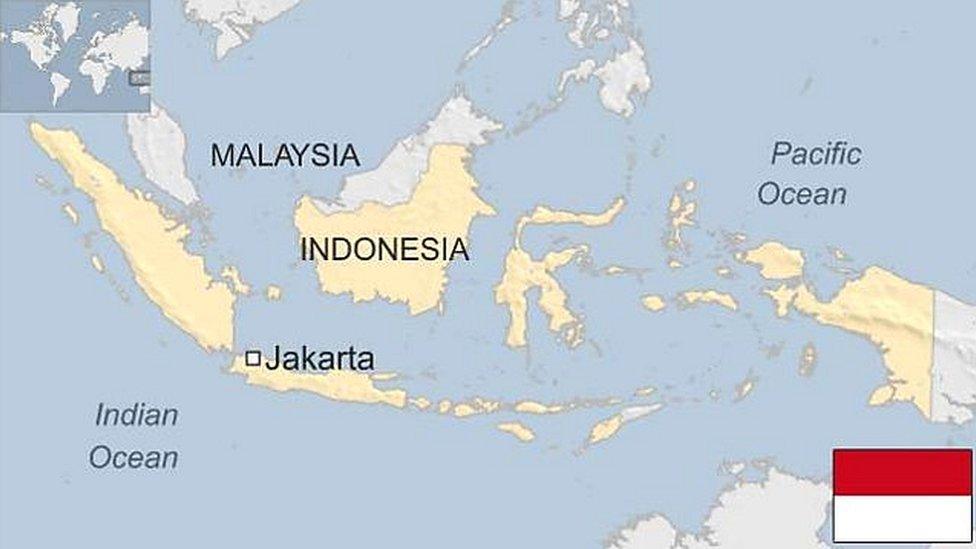Company licenses to be revoked over Indonesia haze
- Published
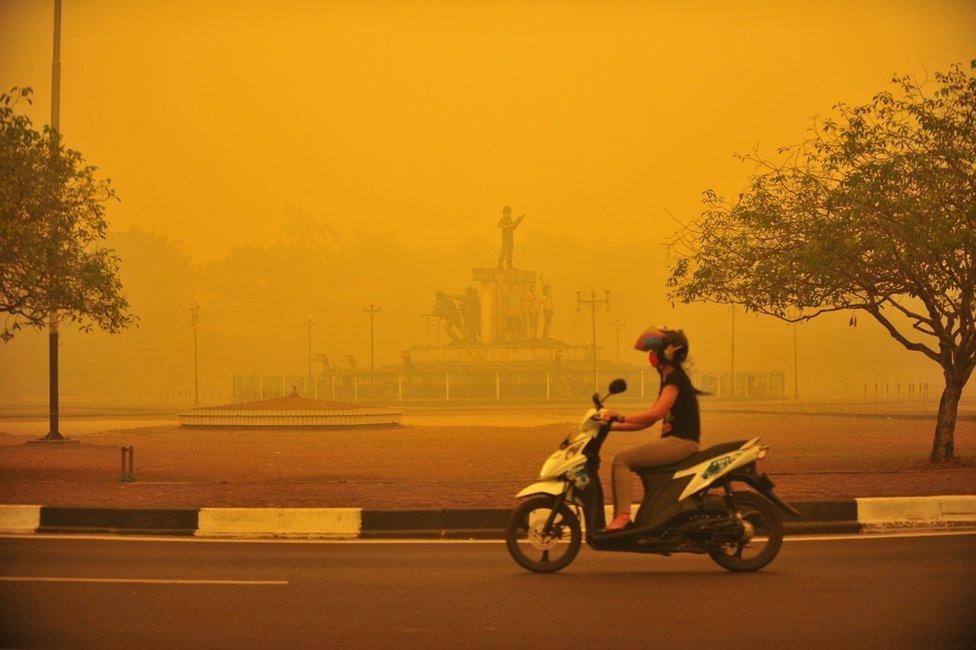
The haze earlier this year saw Kalimantan's air turn yellow in some places
More than 50 Indonesian companies are being punished for their role in causing the haze that blanketed South East Asia earlier this year.
The forest fires that caused the haze are the result of illegal slash-and-burn practices.
The fires are used to clear land for palm oil and pulp wood plantations.
For the first time the government is revoking as well as freezing the licences of companies found responsible.
The pollution caused by the fires has occurred for years, but was particularly bad in 2015.
The government has not named the firms, but released the initials and general location of 30 of the 56 companies who are being punished
Only one of the companies was confirmed to be foreign-owned. Another is a supplier to one of the world's biggest paper and pulp producers Asia Pulp & Paper (APP).
Forestry Minister Siti Nurbaya said other companies would be punished for not putting out blazes that reached their areas, the BBC's Rebecca Henschke reports from Jakarta.
Ms Nurbaya told a news conference that more companies were under investigation.
It is illegal in Indonesia to clear more than two hectares of land by what is known as slash-and-burn methods.

Read more about the haze
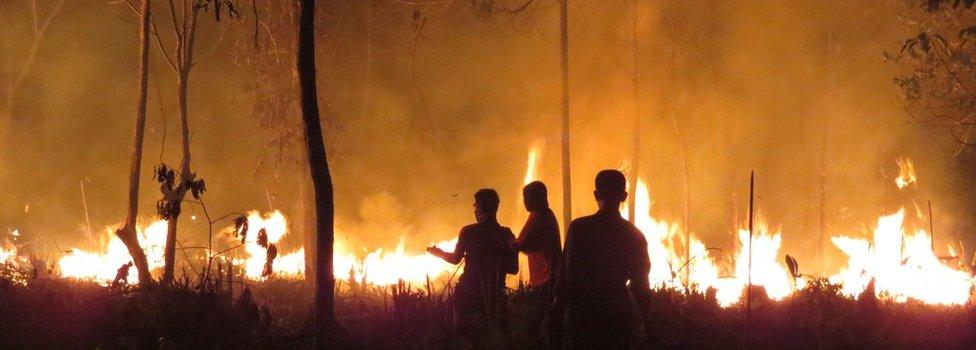
The fires are difficult to put out as they often flare up on peat land
'Slow progress': Firefighters scramble to contain forest fires
Emergency nursery: One Indonesian town's plan to protect its babies
Cause for controversy: What causes South East Asia's haze?
Indonesia 'needs time': Joko Widodo says he needs three years to tackle haze

The government said in October that people caught flouting the law would face up to 10 years in jail.
But local farmers have said convictions are unlikely.
Many experts believe fires are likely to start up again when the rainy season ends in March.
President Joko Widodo recently told the BBC that it might take at least three years before the situation is under control.
In a quarterly report, external the World Bank said Indonesia's forest fires and subsequent haze this year have cost the country "more than twice" the amount spent on reconstruction efforts after the 2004 Aceh tsunami.
The bank said the cost amounted to 1.9% of Indonesia's gross domestic product (GDP), adding that regional and global costs would be much higher.
The fires have had a devastating impact on children and wildlife - including Indonesia's rare orang-utans.
- Published10 November 2015

- Published16 September 2019
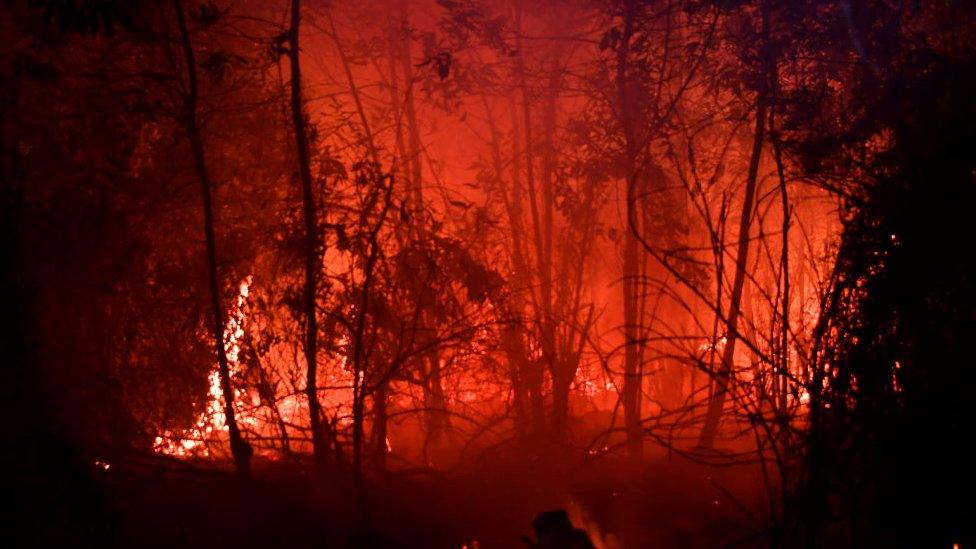
- Published8 October 2015
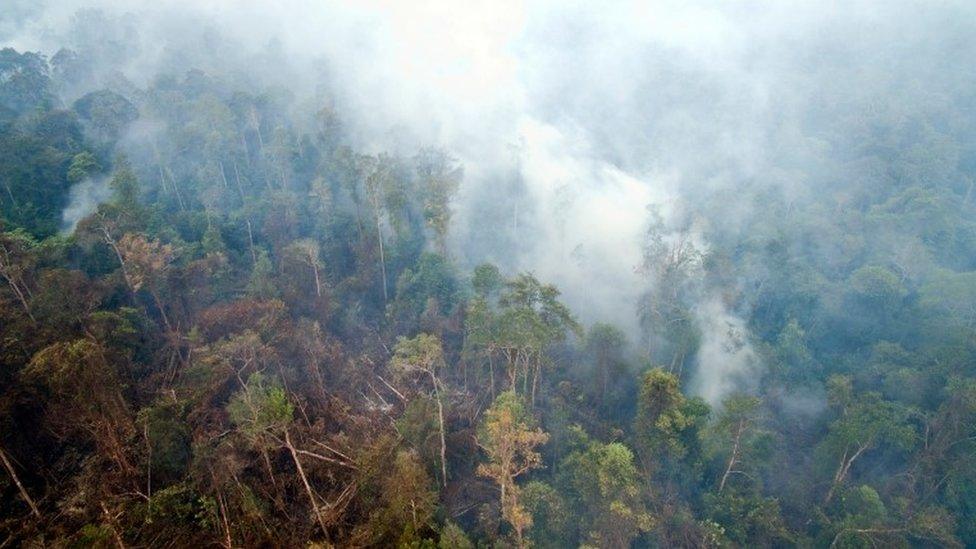
- Published25 October 2024
